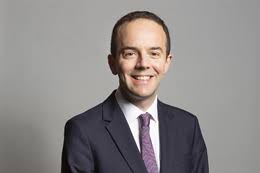
MPs spoke about nursery issues in National Insurance Contributions debate
Many MPs expressed their concerns about the impact of the National Insurance Contributions rise on nurseries and private childcare providers in a Parliamentary debate (17 December).
But Exchequer Secretary James Murray dismissed the issues, referring to increased funding.

Ahead of the debate, NDNA had briefed many MPs including Conservative MP Gareth Davies who quoted NDNA statistics about how the average nursery would need to find an additional £47,000 in staffing costs.
Labour MP Stella Creasy and Lib Dem MP James MacCleary, who is the new Chair of the APPG for Early Education and Childcare, also used NDNA’s research. The sector must have to pay an additional £72m to hire the 29,000 staff needed for the expansion in England in September. The impact on nurseries is particularly hard-hitting because staffing makes up around 75% of an average nursery’s delivery costs compared with restaurants who spend about 30% on staff.
Amendments to support nurseries were debated including one in which nurseries and universities would continue to pay NICs at the current rate. Another amendment would ensure the Government would review the impact of NICs on nurseries.
Following the debate, Purnima Tanuku OBE, Chief Executive of National Day Nurseries Association (NDNA) said: “We are grateful to the many MPs who spoke out during the National Insurance Contributions Bill debate yesterday about the difficulties nurseries would face in paying this rise from April.
“Exchequer Secretary James Murray responded by saying that it’s ‘likely that childcare providers will be able to benefit from the employment allowance’. However, current rules mean that as the government-funded hours are increasing, they won’t be eligible for this allowance. Analysis by the Institute for Fiscal Studies suggests this is already the case and nurseries are heading towards 80% of their places being publicly-funded. We urgently need the Government to review their rules and reimburse private and voluntary early education settings in the same way that they will do for schools and school-based nursery provision.
“While it’s good that MPs understand the situation and are making these crucial arguments for nurseries, the Government must change the rules to enable nurseries to be sustainable. If this is not addressed urgently, parents will be left footing the bill or risk a further reduction in places and more closures.”
Stella Creasy told the House: “I tabled new clause 4, which is about having a review of one element of all that, to ensure that we do not cut off our nose to spite our face when trying to get more people into work. We recognise that extra national insurance costs may have consequences, be they recruitment freezes, reduced staff training or even closures, at a time when we want the sector to expand. Indeed, the majority of nurseries have staff vacancies, so they need extra people already.”
James MacCleary quoted from NDNA’s research: “The rise, coupled with the increases to the national living wage and the minimum wage, will hit the early education and childcare sector particularly hard. As chair of the all-party parliamentary group for childcare and early education, I must make the Committee aware of how dire the situation is. An average nursery will face additional staffing costs of nearly £40,000 a year due to the increases. That is because staffing costs account for 75% of nurseries’ running costs, compared with just 30% for the average restaurant. If Government funding rates do not cover the gap, parents will face higher fees, potentially leaving them to reduce their working hours or to leave the workforce altogether.
“The situation is exacerbated by the fact that private nurseries delivering Government-funded hours may not be eligible for employment allowance. That means that they may not receive the intended financial support from the Government. The sector is already facing recruitment challenges, with 29,000 new staff needed by September 2025 to deliver the promised 30 hours of funded childcare. The national insurance changes could lead to recruitment freezes, reduced staff training and even nursery closures. That is the precise opposite of what this Government claim they want to see for working parents and carers. That would have a detrimental effect on families and the economy, hindering economic growth, and it could seriously impact the Government’s commendable aim of having half a million more children hitting early learning goals by 2030.”
Exchequer Secretary James Murray responded to the MPs by saying: “Early years providers have a crucial role to play in driving economic growth and breaking down barriers to opportunity.
“Despite the very challenging circumstances that the Government inherited, the Chancellor announced in her Budget in October significant increases to the funding that early years providers are paid to deliver Government-funded childcare places. This means that the total funding will rise to over £8 billion in 2025-26.
He added in response to the issue of eligibility for employment allowance: “While every organisation will need to check its eligibility for the employment allowance, it is likely that many childcare providers will be able to access it.”
- England
Similar Articles
Early years recognised across the New Year Honours list

Maths Champions: Festive Early Years Maths Success


